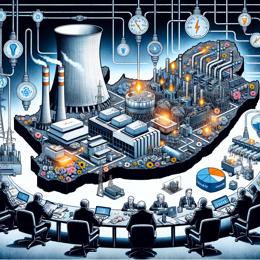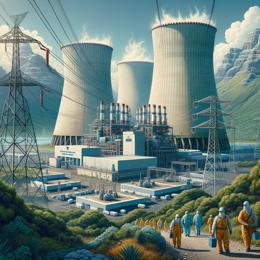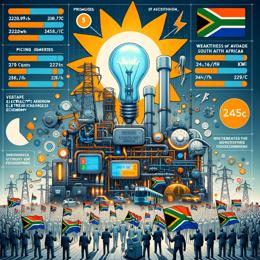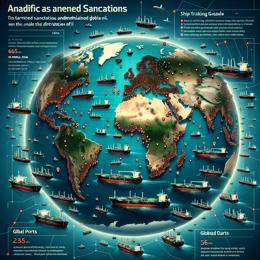Content created by AI
Nersa Greenlights 98 New Power Projects Amplifying SA's Renewable Energy Landscape
In a landmark move for South Africa’s energy sector, the National Energy Regulator of South Africa (Nersa) has approved the registration of a substantial number of electricity generation projects that will significantly bolster the nation’s power supply. This approval, encompassing a total of 98 new facilities, marks a monumental step in the country's transition towards renewable energy sources and paves the way for sustainable growth and economic development.
Over the span of just three months, from July to September, Nersa completed the processing of registrations for these projects, which promise to deliver a combined capacity of a remarkable 900MW of electricity. The vast majority of these initiatives, 92 in total, are solar plants—a clear sign of South Africa’s commitment to embracing solar energy as a key component of its power generation mix. The approximate investment for these solar-powered endeavors stands at around R17 billion, reflecting not only the country's resolve to shift to greener energy but also the potential economic benefits that come with it.
The geographical dispersion of the projects is particularly noteworthy, with the most activity seen in the provinces of Gauteng, the Western Cape, and KwaZulu-Natal. These areas are set to become vital hubs for renewable energy generation, contributing not only to regional energy security but also fostering socio-economic benefits such as job creation and infrastructure development.
Gauteng, the country's economic powerhouse, is positioned to gain substantially from the energy boost. Reliable power is a prerequisite for industrial growth, and the expected increase in energy availability is anticipated to invigorate business operations and attract further investment to the province.
The Western Cape, known for its commitment to sustainability, is poised to enhance its green credentials with the introduction of these new solar plants. This development is in line with the province's long-term vision to become a leading player in renewable energy and to transition away from reliance on fossil fuels.
KwaZulu-Natal, with its diverse economy and strategic positioning, will also benefit from the increased energy security and sustainability provided by the new projects. As the third most populous province in South Africa, the supply of additional power is crucial for meeting the growing demand and supporting the province's myriad industries.
The pivotal role that Nersa plays in the regulatory landscape cannot be understated. Its approval serves as a green light for progress, allowing projects to transition from the planning stages to the real-world creation of energy infrastructure. This rapid processing and registration signify that South Africa is ready and capable of adapting to the changing energy market, where the move away from traditional, carbon-intensive power sources is not just a trend but a necessity to combat climate change and promote environmental sustainability.
The projects are also expected to spur innovation in the renewable energy sector, as new technologies and approaches are developed and deployed to optimize the harnessing of solar power. This will undoubtedly contribute to the global knowledge base and position South Africa as a potential leader in green energy.
This milestone by Nersa is a substantial stride towards achieving South Africa's Integrated Resource Plan (IRP), which aims to diversify the country's energy mix by 2030, reducing the reliance on coal and integrating more renewable sources of energy into the national grid. It aligns with the global movement towards cleaner energy solutions to mitigate the impacts of climate change and provides a blueprint that other countries in similar transitional phases can follow.
As South Africa continues on its journey to a more sustainable and energy-secure future, the decision by Nersa to approve these 98 new power projects stands as a testament to the country's resolve to embrace a renewable energy-powered tomorrow.










